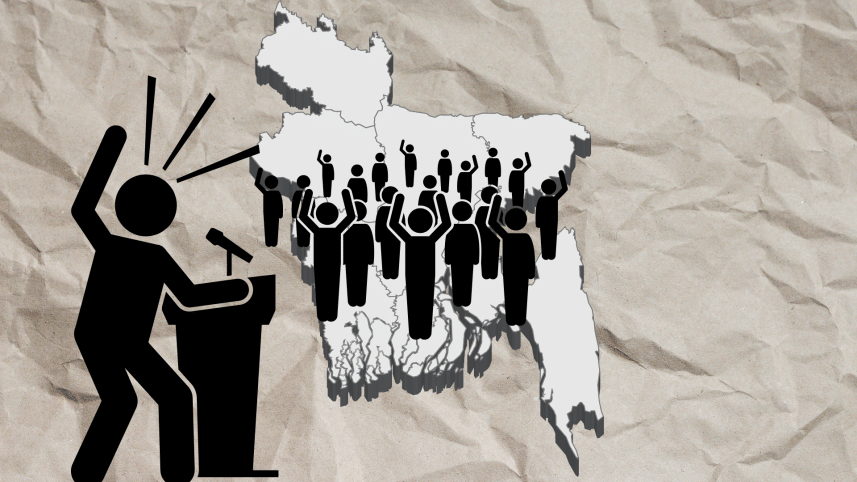What do we really want from National Citizen Party?

Launch of the youth-led Jatiya Nagorik Party (NCP) has built significant interest as well as hope among the people of Bangladesh. Since this is a party led by the very activists of the Students Against Discrimination that spearheaded the movement to topple Sheikh Hasina's regime, expectations have only heightened.
With the country at a crossroads, many citizens, particularly those from marginalised communities, are looking to this new political force for genuine representation and policy reforms.
Bangladesh has long struggled with systemic inequality, corruption, and a lack of political inclusivity. While major political parties have traditionally focused on expediency to win the election, voices of marginalised groups, including disadvantaged communities, ethnic minorities, persons with disabilities, and informal workers, have often been overlooked.
The emergence of NCP presents an opportunity to redefine the political landscape by prioritising these neglected communities. If the party remains true to its core principles of eliminating discrimination and ensuring social justice, it will offer a fresh alternative to the long-standing political duopoly.
For the NCP to become a viable political force, it must go beyond rhetoric and formulate concrete policies. The party needs to outline actionable plans on key issues such as education reform, employment generation, labour rights, and social protection. Bangladesh's marginalised groups have long demanded fair wages, better healthcare, quality education, and stronger legal protection against exploitation. If NCP can incorporate these issues into its political agenda, it may earn widespread support.
Additionally, governance and transparency will be critical. Past movements in Bangladesh have often lost momentum due to internal conflicts, lack of strategic planning, and co-option by established political interests. To sustain its credibility, NCP must establish internal democratic structures, ensure financial transparency, and remain accountable to its supporters. People would want to see the party democratically elect its leaders. They will also want to know where its funds are coming from.
A significant portion of Bangladesh's population is young and politically aware. The demand for a corruption-free administration, an independent judiciary, and equitable economic opportunities is growing stronger and louder. If this new party can espouse these aspirations effectively, it has the potential to challenge the status quo.
While it remains to be seen whether the NCP will evolve into a major political force, its success will largely depend on its ability to effectively address the genuine complaints of the masses. The country is in need of progressive leadership that prioritises people over political gain.
This is their chance to rise to this occasion.




 For all latest news, follow The Daily Star's Google News channel.
For all latest news, follow The Daily Star's Google News channel. 

Comments